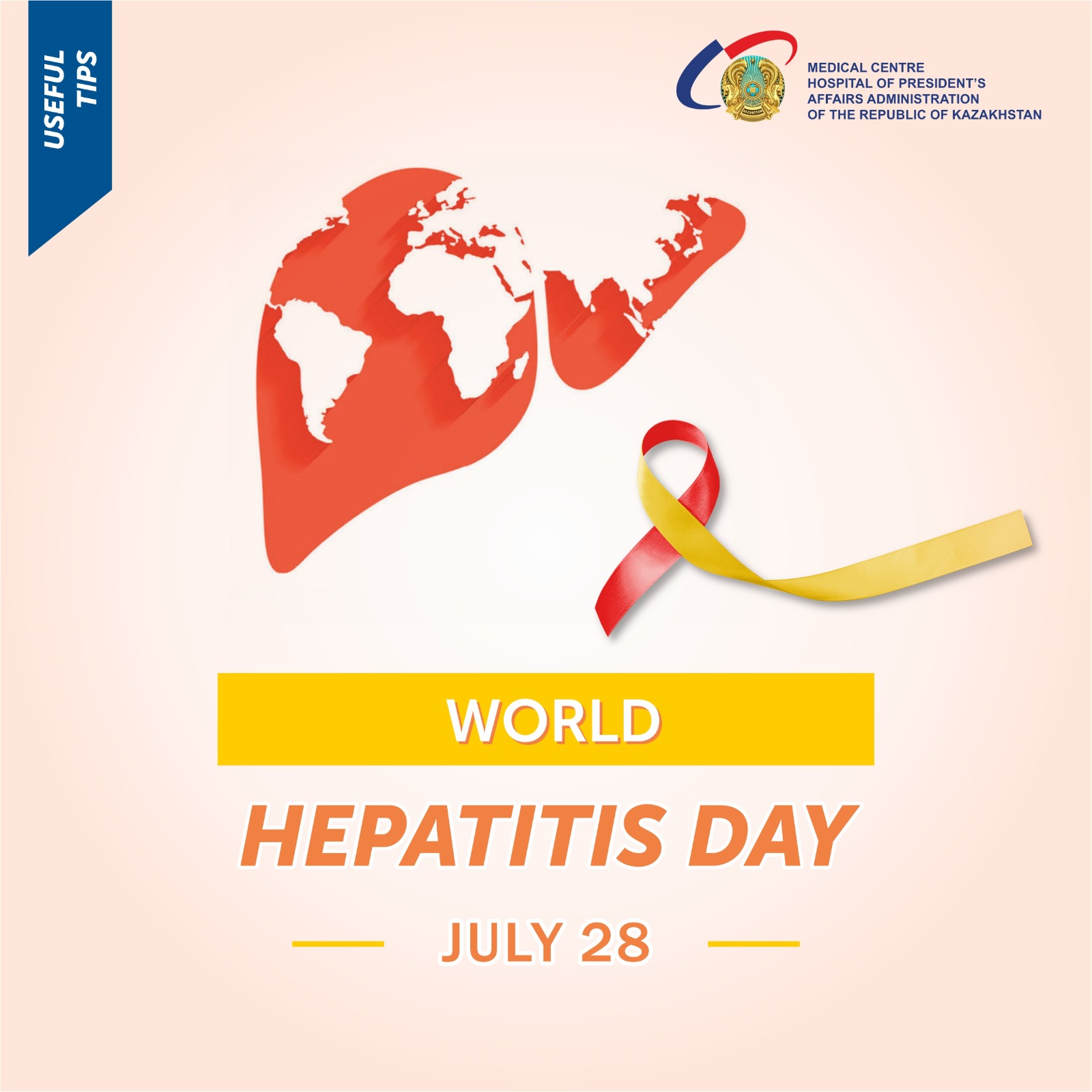Every third human on the planet is suffering from viral hepatitis

World Hepatitis Day, observed on July 28 every year, aims to raise global awareness of viral hepatitis.
According to WHO, approximately 2 billion people in the world are infected with viral hepatitis, (every third human on the planet), 325 million people live with viral hepatitis B or C, 900 thousand people die from viral hepatitis B every year.
49 175 adult patients, including 23 233 patients with hepatitis С, 22 977 people with hepatitis В, 1 252 people with hepatitis D, 5 976 people with hepatocirrhosis and more than 500 people with hepatocellular carcinoma and cholangiocarcinoma are subject to regular medical check-up with “viral hepatitis” in Kazakhstan (as of the end of 2022)
Viral hepatitis is an inflammation of the liver, causing severe pathologies, including cirrhosis and hepatic cancer. Viral hepatitis may be caused by one of 5 viruses: A, B, C, D and E.
Transmission ways depend on virus type and can be fecal-oral, contact-household (А, Е) and parenteral (В, С, D).
Hepatitis A and E are mainly spread by contaminated food (berries, vegetables, greenery can be infected during growth at irrigation fields or in vegetable gardens, fertilized with feces) and water (using bad-quality drinking water, swimming in contaminated water bodies and pools);
Contact-household way of infection transmission is realized at non-compliance with personal hygiene rules (dirty hands, as well as through items, contaminated with infectious agent).
Symptoms: jaundice (yellowing of skin and eyes), darkening of urine, tiredness, nausea and vomiting, discoloration of feces, abdominal pains.
In most cases, hepatitis А is benign, majority of people completely recover and gain life-long immunity.
Prevention of hepatitis А and Е:
- Boil water;
- Thoroughly wash fruits and vegetables;
- Often wash hands with soap;
- Thoroughly cook food;
- Observe safety measures at swimming in water bodies, pools (do not swallow water).
Hepatitis В is transmitted from one human to another during contact with infected blood and its derivatives:
- use of non-sterile medical, dental and cosmetic tools;
- during sexual contacts and though common use of hygienic items (toothbrushes, razors etc.);
In 80% cases, the disease does not have any symptoms, and majority of people do not know that they are infected, therefore it proceeds to chronic stage with cirrhosis or hepatic cancer.
Hepatitis С is the most widespread form of chronic liver diseases, commonly transmitted through infected blood, progresses without symptoms, diagnosed by chance.
Hepatitis D can only infect people already infected with hepatitis B and may lead to worse results.
Prevention of parenteral hepatitis:
1. Immunization is the main method for preventing hepatitis В. After full course of immunization, more than 95% children and young people develops life-long immunity.
2. It is necessary to exclude:
- Manipulations with non-sterile instruments, followed by damage to skin: acupuncture, piercing, tattooing, at nail salons or dental surgeries;
- Common use of personally hygienic items (nail scissors, eyebrow tweezers, razors and toothbrushes);
- Sexual contacts without barrier-type protection methods (condom);




